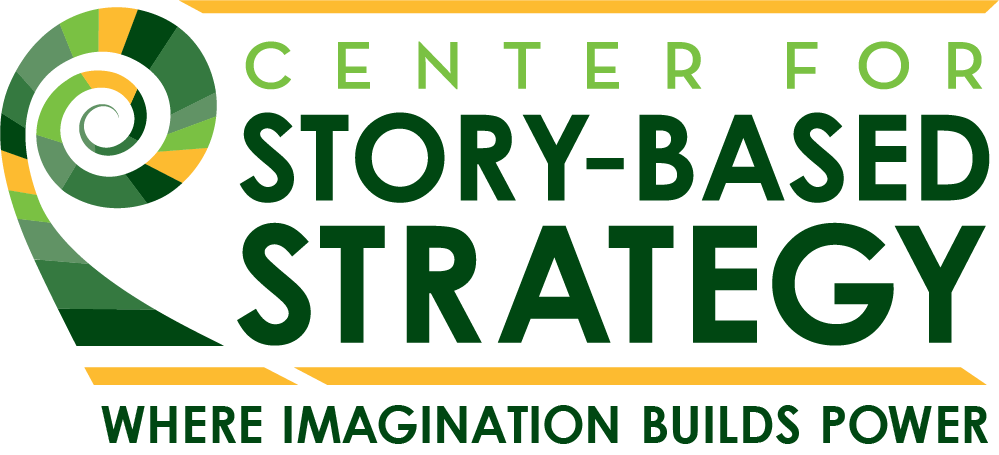New Guide: Changing the story around fossil fuel divestment
by Patrick Reinsborough
s the climate movement grows, the limited vision of the climate crisis as a siloed, single “environmental” issue has been replaced by a growing recognition that climate destabilization is a symptom of deeper flaws in our economic and political system. (A great example is our trailblazing friends at the Climate Justice Alliance’s Our Power Campaign.)
Millions of people around the world are not only confronting the fossil fuel industry but also demanding more democratic control over the flow of capital itself. One of the most exciting and visible expressions of this political strategy in the last few years has been the rapid growth of fossil fuel divestment campaigns. Climate activists have been organizing the institutions they are part of, to shift money away from destruction and towards investing in a more sustainable future. As a result there have been waves of victories: cities, faith institutions, pension funds, foundations and universities going “Fossil Free” and trillions of dollars of investment capital being moved. Particularly as some of these campaigns are expanding to take on the issue of reinvestment––where the money goes instead of fossil fuels––there is exciting potential to support new models of local economic development that prioritize sustainability, democratic participation and justice.
CSS has been honored to support some of these campaigns, by training leaders, offering our tools and workshopping a divest/reinvest campaign at our National Advanced Practitioners Training.
Now adding to the list of resources to support fossil fuel divestment is a great campus divestment campaign guide from 350.org and the Fossil Free Campaign.
Of particular interest to story-based strategists will be the Tell Your Story section of the guide which has some foundational frameworks like the Spectrum of Allies, as well as some classic CSS tools like the Battle of the Story and basic framing tips. Dig around a bit and you will also find some specific analysis on current framing battles around divestment and fossil fuels, including a synopsis of some of the most common oppositional frames.
At CSS we believe deeply that for our campaigns to scale up and win, we need to be echoing each other’s messaging and reinforcing the same shared stories in different places.
So don’t miss a chance to check out some of the insights from the divestment movement captured in this guide. Whether your work involves universities or not, this is a useful resource for anyone organizing to challenge the Fossil fuel industries power.




